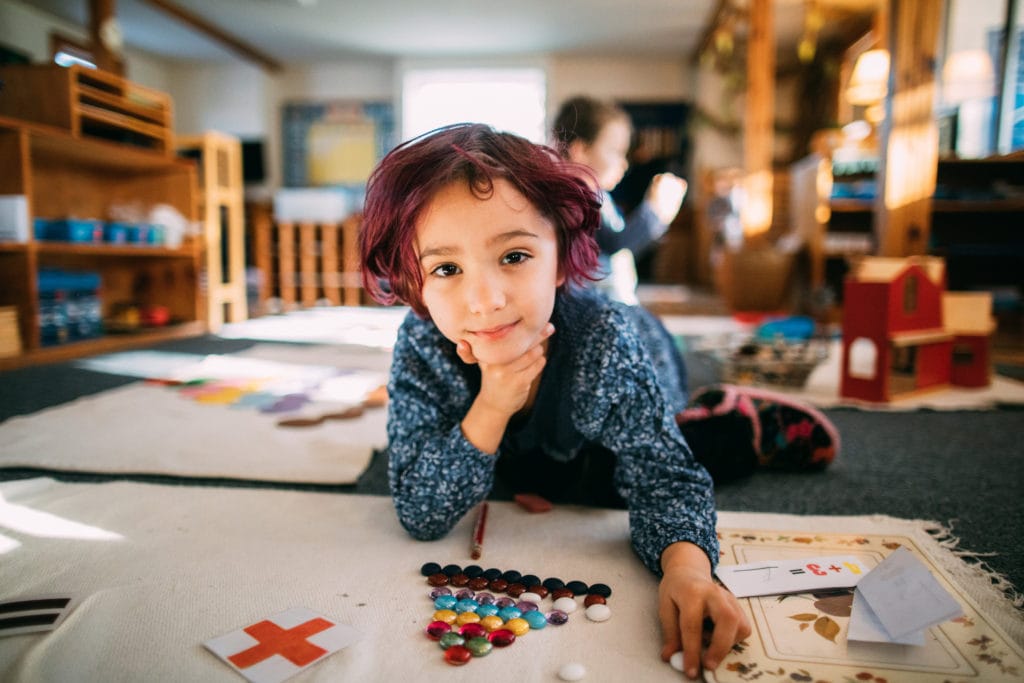The Homestead School educates the body, mind, and spirit of children through experiential learning, while holding high standards in academics and character development. Homestead offers an engaging academic environment, grounded in the Montessori approach and the belief that all children have the innate desire and ability to learn.
Homestead School’s Four Commitments:
- Commitment to Excellence “I strive to do my best in everything I undertake, while being honest and self-compassionate that my best will vary.”
- Commitment to Character “I conduct myself with honesty, respect for all, empathy, compassion, kindness, and a love of life.”
- Commitment to the Earth “I work in partnership to make our human practices on this planet more regenerative, more equitable, more livable.”
- Commitment to Service “I am here to serve and support the growth of the greater good.”
Learning Environment that Supports Each Child
Our students benefit from a personalized program, dedicated teachers, and a carefully-considered curriculum that nurtures creativity and fosters independent thinking. By working through the sequenced curriculum at their own pace, students become independent and self-motived learners. Individual and group interests are followed by the teacher, and curriculum is delivered using a hands-on, experiential approach. As a result, students find connection, meaning, and joy in their learning.
Homestead students are supported in pursuit of their interests by a deeply-rooted and diverse community of families and educators.
Culture of Collaboration, Inclusiveness, and Respect
From their earliest years, Homestead students participate in creating and experiencing peace through quiet hikes in nature, song, and time spent with the school animals. They learn to build healthy, empathetic relationships and communicate effectively through the peace curriculum that is integral to the classroom culture. Just as the young elementary child learns about his or her place in the world, the older child learns one’s place in the concentric circles of community. Peace education becomes a process of inner development and outward service. Mixed-age classes in broad-aged school populations afford many opportunities for children to collaborate. Throughout their time at Homestead, students are introduced to, participate in, and lead initiatives that promote inclusion and respect.
This approach enhances each student’s sense of belonging and facilitates optimal learning.
Self-Development and Self-Esteem
Students at Homestead School have a strong understanding of who they are and believe in their ability to contribute to the world in positive ways. Our graduates see life as filled with possibility, and their grounded perspective leads them to find meaningful ways to learn, grow, and contribute throughout their lifetimes.
Circle Of Care
The Homestead School’s Circle of Care provides a guiding framework for how we can mutually support one another within our school community. Rooted in the principles of Earth Care, People Care, and Future Care, it embodies our commitment to fostering a harmonious relationship with the planet, nurturing the well-being of individuals and communities, and safeguarding the resources and opportunities of future generations. This approach calls us to cultivate a community where each member feels valued, supported, and empowered, while collectively contributing to a flourishing, resilient environment that sustains and uplifts us all.
Please click on the button below to share your potential contributions to our Homestead Circle of Care.


